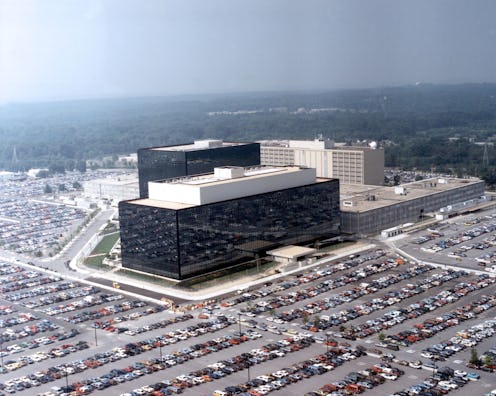News
Wanna Do PR For The NSA?
Well, everyone has their price, right? But here's a question — just how much would you demand to become the National Security Agency's new public relations spokesperson? Actually, that's not up to you; the annual salary is already set at $175,000, so you only need to decide whether or not that's enough money. It's a decent sum, to be sure, but to earn it you'd be taking on a pretty massive undertaking.
By the very nature of its job, the NSA is constantly engaged in activities that many people are going to find highly objectionable — be it surveillance foreign and domestic, spying, or maybe even outright spying on American allies. In short, exactly the sort of things that could make a spokesperson's hair turn gray long before its time.
While there's no telling for sure how open or responsive an NSA spokesperson would actually be — I mean, let's be honest, would you really trust the word of someone working PR for the NSA anyway? — it's still useful to consider the kinds of things you might have to explain if you were standing in those shoes. After all, stress beats money at some point, right?
The Edward Snowden Leaks
Sort of the granddaddy of all NSA scandals, and the origin of numerous revelations that have raised public awareness and criticisms of American's surveillance and spying practices. Also, undoubtedly a public relations nightmare — Snowden not only released classified documents (including disclosure of the controversial PRISM program), but he's stayed in the public eye while in Russia, occasionally chiming in to criticize state surveillance, and did a lengthy interview with NBC's Brian Williams in late May.
In other words, he's an active voice working to undermine what he sees as an unjust, invasive surveillance administration, and he's become more famous and high-profile than any public relations expert the NSA could hope to recruit. Good luck keeping the lid on this one.
Wiretapping Angela Merkel's Cellphone
For all the controversy and criticism they've absorbed since Snowden's dramatic flight from the U.S., it's perfectly easy to imagine situations in which the NSA's aggressive surveillance practices are necessary — as hackneyed as the phrase is, the world can be a dangerous place.
But what the NSA was caught doing in Germany is a lot harder to explain. In February 2014, it was exposed that they'd been wiretapping the personal cellphone of German chancellor Angela Merkel. Germany is ostensibly one of America's strongest European allies, so the news that the NSA had been snooping on the highest office-holder in all of German government sparked a lot of anger — for perspective, it would be as if the German Bundesnachrichtendienst (BND) had wiretapped President Obama's personal phone. Which is to say, a flagrant invasion of a national leader's privacy that no country is going to smilingly tolerate.
What can you say about something like this? Maybe this shows why the NSA wants a proper spokesperson — the American response to this revelation was not very smooth. The White House said that the NSA "is not monitoring and will not monitor the communications of the chancellor." So, Mr. or Ms. Public Relations, what do you do when you're asked the obvious next question: You aren't, and won't, but did you?
Germany's NSA Inquiry Undermined
The revelations of NSA spying against Merkel — and top German officials, which the U.S. reportedly wiretapped after having their cover blown on Merkel — led to an official investigation into the NSA's activities by the German parliament. This is a major headache for anybody tasked with defending the agency, or trying to conceal its actions from broad scrutiny. And let's be honest, a little concealing rhetoric would probably be a huge part of the spokesperson job.
Beyond the wiretapping scandal, the inquiry has caused even more discontent and intrigue through its very existence. An employee of Germany's BND was arrested in the midst of the investigation, on charges of spying for the United States, and passing classified documents. German distrust of American intelligence agencies has now reached levels such that Patrick Sensburg, the head of the parliamentary investigative committee, admitted they'd considered switching back to typewriters to thwart any digital surveillance of their work.
Basically, the health of America's relationship with a strong European ally has been shaken to its core, all because the NSA just had to hear what Angela Merkel was saying on her personal line.
Maybe this one's best served with a simple "no comment," but that's hardly earning your $175,000 a year, is it?
Images: NBC News, Getty Images (2)
